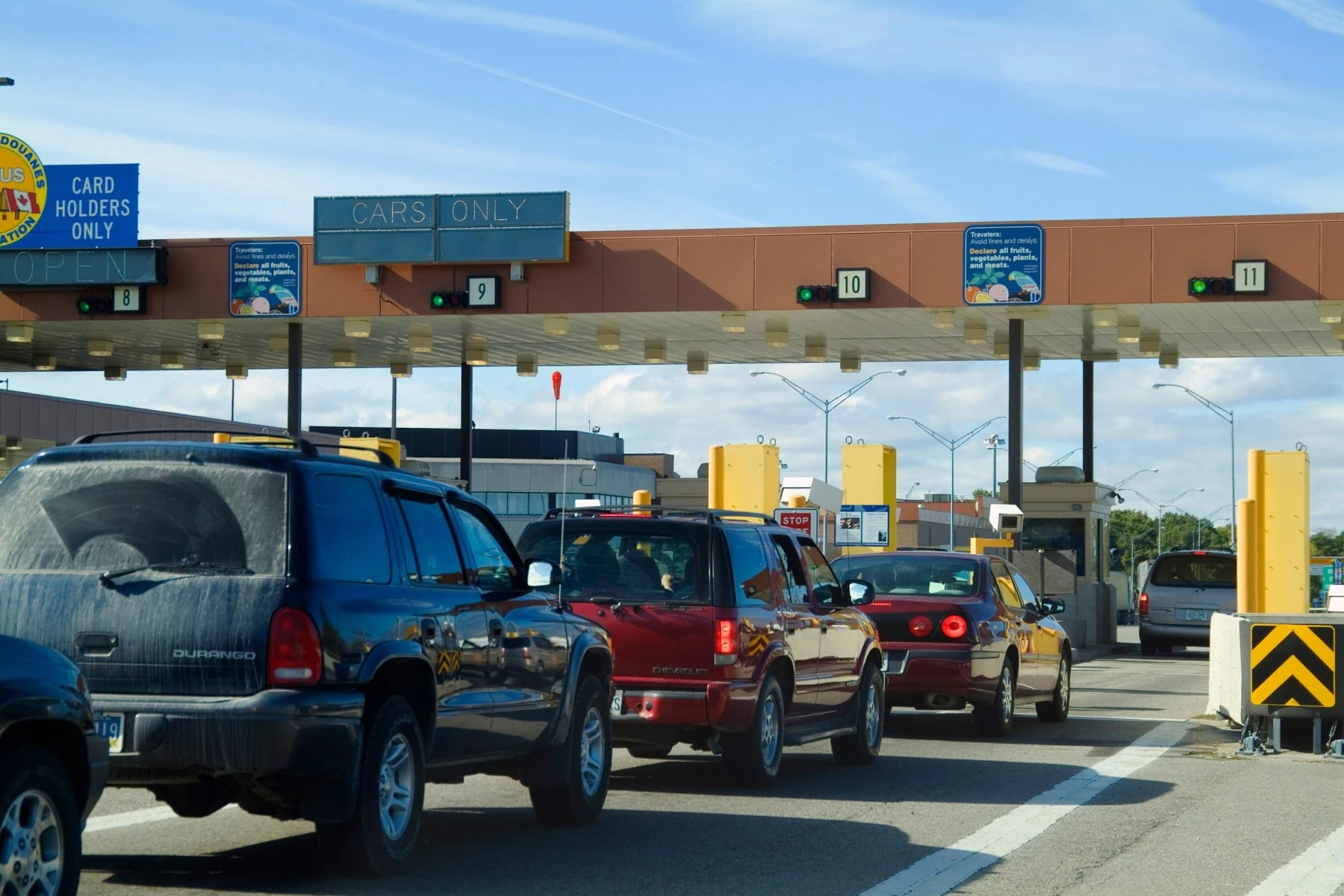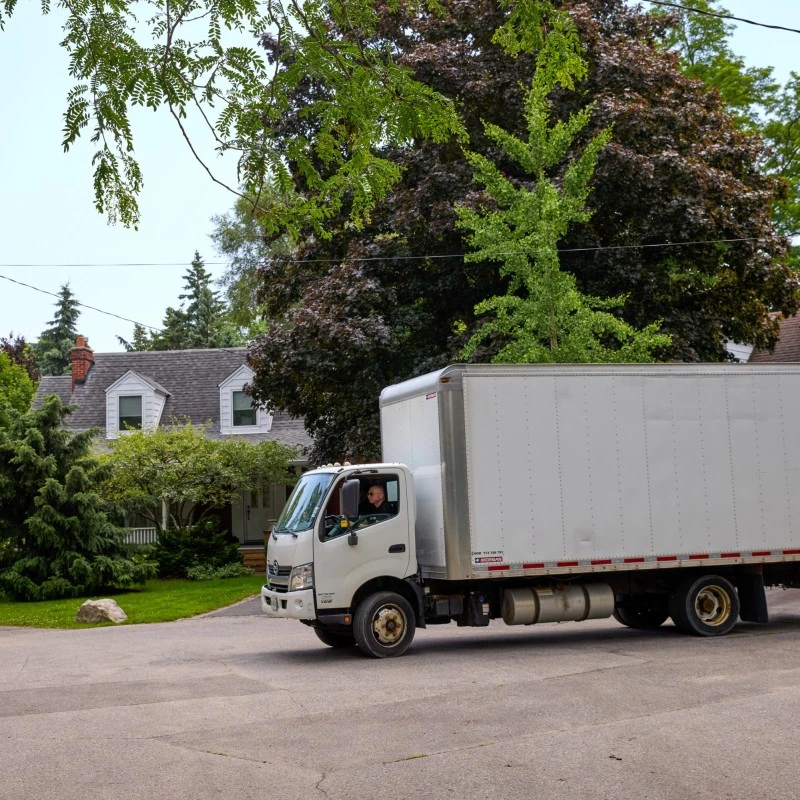What to know before you move to Canada from the US


There are multiple reasons why Americans may consider moving to Canada. You may be seeking a higher quality of life, access to healthcare and political stability or to be closer to family. You may also really like skiing.
Whatever your reasons, it's good to know the ins and outs of immigrating and moving to Canada from the US before starting the process.
The fact that English is the main language in both countries makes the process easier—unless you are moving to French-dominant areas of Quebec, of course. But overall, there are some subtle and not-so-subtle differences between life in Canada vs. the USA. Gun laws, income taxes and year-round temperatures vary greatly between the two nations. The US, in general, also has a stronger emphasis on national pride.
This guide outlines your options for obtaining Canadian residency, how much it will cost you to move to Canada from the US, and tips to help make the entire process a lot easier.
The benefit of proximity
Moving from the United States to Canada is often smoother with fewer adjustments to make compared to other nationalities thanks to several practical and cultural advantages.
Shared language
Most Canadians speak English, so Americans rarely face language barriers when settling in. This makes everything from navigating immigration paperwork to accessing healthcare and finding a job much easier.
Cultural similarities
The two countries share much of the same media, shopping habits, food, and lifestyle. Even subtle things, such as traffic rules, tipping practices, or workplace expectations are similar, making your integration far more intuitive and efficient.
Working in Canada
Americans have an edge through agreements like CUSMA (formerly NAFTA), which allows professionals in certain fields to apply for temporary work permits without needing a Labour Market Impact Assessment (LMIA). Americans also tend to have better access to business networks and investment capital, making entrepreneur programs like the Start-up Visa or provincial nominee entrepreneur streams more accessible to them.
Qualifications and credentials
Canadian employers and licensing bodies are usually familiar with U.S. degrees and professional experience. That means American qualifications are often more easily recognized compared to those from other countries.
-
Proximity: Americans can drive across the border, ship belongings affordably, and travel back and forth with ease. Many time zones are shared, and it's quick and convenient to visit friends or family in either direction.
-
Support upon landing: Many Americans already have family or friends in Canada, providing a valuable support network during the transition.
-
Job market and workplace culture: Canada’s job market and workplace culture are aligned with that of the U.S. Resumé styles, interview formats, and expectations in the office are all similar/
-
Easy visiting: U.S. citizens don’t need a visa to visit Canada for up to six months. This allows Americans to explore cities, attend interviews, or network in person before making the move.
Overall, Americans are among the best-positioned newcomers to successfully move to and settle in Canada.
Canadian immigration programs
Express Entry
Canada supports a strong work ethic and welcomes you if you offer your skills and expertise to help enrich and improve Canadian society. Express Entry is an efficient route to permanent residency in Canada for professionals, tradespeople, and those with prior Canadian work experience.
Immigration programs that manage applications
-
Federal Skilled Worker Program (FSWP)
Applicants are assessed using the Comprehensive Ranking System (CRS), which is a points-based system that evaluates individuals on different criteria, including:
-
Age
-
Level of education
-
Relevant work experience
-
Proficiency in English and/or French
-
Valid job offers in Canada or a nomination through the Provincial Nominee Program (PNP)
If you meet the eligibility requirements, you can enter the Express Entry pool through the FSWP or FSTP. Candidates are ranked according to their CRS scores, and those with the highest scores receive an Invitation to Apply (ITA) for Canadian permanent residency.
It sounds simple enough, but bureaucracy is never really that simple under the surface.
While applying for Express Entry, double-check everything, consult with immigration experts, and do your research. Try and learn everything you can about Express Entry before undergoing the process.
Family Sponsorship
Canada has strong family values and supports families being together. Several immigration pathways enable Canadian citizens and permanent residents to sponsor close family members to join them and become permanent residents themselves.
Under Canada's family sponsorship program, there are options to sponsor the following family members:
1. Spouse, Common-law Partner, or Conjugal Partner
-
Must be at least 18 years old.
-
The relationship must be genuine and not entered into solely for immigration purposes. This one is harder to prove, but the government works hard to spot fraudulent immigration arrangements.
2. Dependent Children
-
Must be under 22 years old and not married or in a common-law relationship.
-
Children over 22 may qualify if they depend on their parents due to a physical or mental condition.
3. Parents and grandparents
-
Sponsored through the Parents and Grandparents Program (PGP)
-
This program operates by invitation and usually requires meeting income thresholds and signing a financial undertaking.
4. Other eligible relatives (in limited cases)
-
Orphaned siblings, nieces, nephews, or grandchildren under 18 who are unmarried and not in a common-law relationship.
-
In rare cases, a relative of any age may be sponsored if the sponsor has no other close family members in Canada or abroad.
Key sponsorship requirements
-
The sponsor must be at least 18 years old.
-
Must be a Canadian citizen, permanent resident, or a person registered under the Canadian Indian Act.
-
Must demonstrate the financial ability to support the sponsored person (especially for parents and grandparents).
-
Agree to a legal undertaking to provide financial support for a specific period.
Super Visa (Alternative for parents and grandparents)
If you're not selected under the PGP, the Super Visa allows parents and grandparents to stay in Canada for up to 5 years at a time, with multiple entries over 10 years.
Provincial Nominee Program (PNP)
The Provincial Nominee Program helps Canadian provinces and territories choose immigrants who have the necessary skills, education, and work experience needed to boost their local economies.
Each province and territory runs its own immigration streams. These are specialized programs that focus on attracting certain types of applicants. These streams vary depending on the region’s priorities and labour market needs.
Some streams are designed for specific groups, such as students, entrepreneurs, skilled workers, or semi-skilled workers. The goal is to connect newcomers with jobs and industries where their skills are in demand. Here are a few examples of how PNPs work in different provinces:
Ontario Immigrant Nominee Program (OINP)
OINP offers several different streams, including:
-
Human Capital Category – for skilled workers, French-speaking candidates, and international graduates.
-
Employer Job Offer Category – for individuals who already have a job offer in Ontario.
-
Business Category – for entrepreneurs who want to start or buy a business in the province.
British Columbia Provincial Nominee Program (BC PNP)
The BC PNP includes:
Skills Immigration – for skilled and semi-skilled workers in high-demand occupations.
Express Entry BC – a faster option for those who qualify for the federal Express Entry system.
Entrepreneur Immigration – for business owners and investors looking to set up in B.C.
Start-up Visa Program
Canada recognizes the value of welcoming innovative minds into the country to establish businesses, boost the job market and economy, and diversify commerce, tech and other sectors. The Start-up Visa Program is designed for immigrant entrepreneurs with the skills to start a business in Canada (outside of Quebec) that:
-
Introduce new ideas or technologies.
-
Create jobs for Canadians.
-
Compete in international markets.
To qualify, you must:
-
Pitch your start-up to a designated organization and receive their support.
-
Meet minimum language requirements.
-
Have enough funds to settle in Canada.
For the Start-up Visa Program, the amount of settlement funds you need depends on the size of your family and is updated annually by Immigration, Refugees and Citizenship Canada (IRCC).
Settlement fund requirements [2025]
|
Number of Family Members |
Required Funds (CAD) |
|
1 |
CA$14,690 |
|
2 |
CA$18,288 |
|
3 |
CA$22,483 |
|
4 |
CA$27,297 |
|
5 |
CA$30,690 |
|
6 |
CA$34,917 |
|
7 |
CA$38,875 |
|
Each additional person |
+CA$3,958 |
Things to remember
-
You must prove you have these funds at the time you apply and when you arrive in Canada.
-
The money must be readily available (e.g., in a personal bank account).
-
It cannot be borrowed or financed.
-
If you have a work permit with a job offer, you may be exempt, but for the Start-up Visa, most applicants still need to show proof of funds.
If you’ve already applied for permanent residence under this program, you may be eligible for a temporary work permit. To qualify, you need to:
-
Show that your business offers a significant economic benefit to Canada
-
Prove you have enough financial support to settle
Immigration application fees
|
Application |
Fees |
|
Express Entry |
CA$1,365 + spouse/child fees, test, ECA |
|
Family Sponsorship |
CA$1,165 (spouse), CA$150 per child |
|
Provincial Nominee |
CA$1,365 + province fee (varies by province) |
|
Start-up Visa |
CA$1,365 + legal/business/start-up costs |
Tips for a smooth moving process
Do your research
Read all about the different geographical regions of Canada and which cities have the best weather for you and your preferences. If you don’t like the rain, think about moving somewhere away from Canada’s coasts. If the long deep freeze of Canadian winter is daunting, a coastal temperate area might be better suited.
There are also cultural variations to consider. If you're looking for a multicultural, metropolitan vibe, Toronto or Montreal might be the right fit for you. If you love outdoor adventures, check out BC’s multi-terrain areas where outdoor recreation IS the culture.
Beyond climate and lifestyle, consider the cost of living in various areas. A life in Vancouver will cost way more than a small town in any other province. The job market is also a factor, so find out which areas of Canada support your industry or sector.
Prepare your documents
Make sure you have an up-to-date passport, proof of funds necessary for immigration, educational credentials if needed, and criminal record and health checks.
Set up health coverage
Once you’ve arrived in Canada, apply for provincial health insurance as soon as you can. You can do this online, in person at a provincial services office, or by mail. There will be a gap period while you wait for the paperwork to be processed, so consider private health insurance while you wait.
Become familiar with Canadian culture and laws
While social norms are similar, Canadians have their own unique cultural etiquettes, emphasizing politeness, welcoming inclusivity, and respect for privacy. You'll also notice differences in healthcare, banking, taxes, and the metric system.
Build a support network
Find Facebook groups geared towards American immigrants living in Canada. There may even be local meetups in your area. If you have a young family, look for support groups for parents and family activities.
Moving to Canada is an exciting opportunity to experience a high quality of life, cultural and geographical diversity, and warm, welcoming communities. Once you understand the visa process, get an idea of the type of finances you will need, and follow through with the tips listed above, your confidence in a new environment will grow. Keep your mind open and your task list organised, and you will be enjoying life in Canada in no time.
What do our customers say?





























